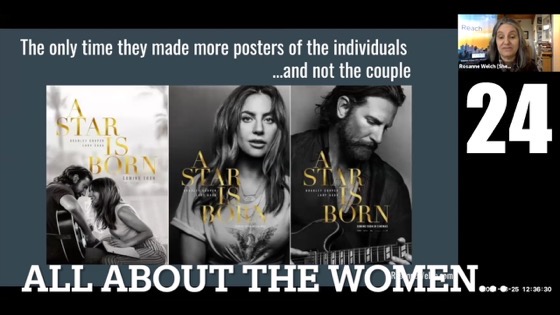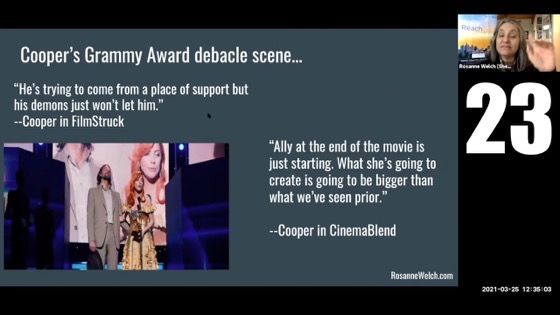Many thanks to Janice Law of the American Women Writers National Museum who invited me to give a short talk on The Women of Early TV.
I enjoyed sharing the names and careers of women like Peg Lynch, Gertrude Berg, Selma Diamond, and D.C. Fontana to the members who gathered on Zoom last Wednesday morning. There are so many more I could have talked about whose names don’t appear in mainstream books about the history of television so we have to learn who they are and carry those names forward ourselves. It’s one of the missions of the Stephens College MFA in TV and Screenwriting – and has been one of my missions all my life.

Transcript:
Most importantly the first woman who began in Star Trek — Dorothy Catherine Fontana. Now, this is something very important to me for us to recognize. She was told that boys would not watch programs or read books — she wrote short stories — that were written by a girl if they had male protagonists. So she was encouraged by both her publisher and her television agent to go by her initials DC which meant that legions of girls did not know that DC Fontana, their favorite Star Trek writer, was a female right, and that’s been, I think, a problem for years. We continue to do that. When I was a kid in high school you read The Outsiders by S. E. Hinton — Susan Elizabeth Hinton — because no one thought anyone would write a book about gang kids written by a girl. likewise, I think — I’d like to think we grow out of these things but in fact, in my son’s childhood, the major giant best-selling book around the world was written by J. K. Rowling because no one thought boys would read a book by a girl named Joanne. So we really need to get rid of that idea. We also need to recognize the women who came before us who were following that. So Dorothy Fontana…
Many thanks to Janice Law of the American Women Writers National Museum who invited me to give a short talk on The Women of Early TV.
I enjoyed sharing the names and careers of women like Peg Lynch, Gertrude Berg, Selma Diamond, and D.C. Fontana to the members who gathered on Zoom last Wednesday morning. There are so many more I could have talked about whose names don’t appear in mainstream books about the history of television so we have to learn who they are and carry those names forward ourselves. It’s one of the missions of the Stephens College MFA in TV and Screenwriting – and has been one of my missions all my life.
Watch this entire presentation
Women pioneers who created, produced, or shepherded many of America’s most wildly popular, early television programs will be profiled by Dr. Rosanne Welch.
Podcast: Play in new window | Download
Subscribe: RSS
![11 D. C. Fontana From Women in Early TV for the American Women Writers National Museum [Video]](https://rosannewelch.com/wp-content/uploads/2022/02/rmw-visible-stars-early-tv-11.jpg)

![28 What Would Margaret Do Today? from Concord Days: Margaret Fuller in Italy [Video]](https://rosannewelch.com/wp-content/uploads/2022/02/rmw-concord-day-2021-fuller-rome-28.jpg)

![10 Star Trek From Women in Early TV for the American Women Writers National Museum [Video]](https://rosannewelch.com/wp-content/uploads/2022/02/rmw-visible-stars-early-tv-10.jpg)
![27 The Fuller Biographies from Concord Days: Margaret Fuller in Italy [Video]](https://rosannewelch.com/wp-content/uploads/2022/02/rmw-concord-day-2021-fuller-rome-27.jpg)

![09 Other Desilu Shows From Women in Early TV for the American Women Writers National Museum [Video]](https://rosannewelch.com/wp-content/uploads/2022/01/rmw-visible-stars-early-tv-09.jpg)
![26 An Italian In America? from Concord Days: Margaret Fuller in Italy [Video]](https://rosannewelch.com/wp-content/uploads/2022/01/rmw-concord-day-2021-fuller-rome-26.jpg)

![08 Lucille Ball From Women in Early TV for the American Women Writers National Museum [Video]](https://rosannewelch.com/wp-content/uploads/2022/01/rmw-visible-stars-early-tv-08.jpg)